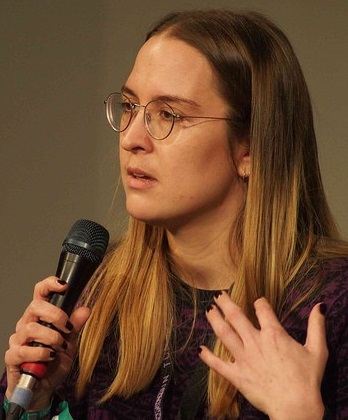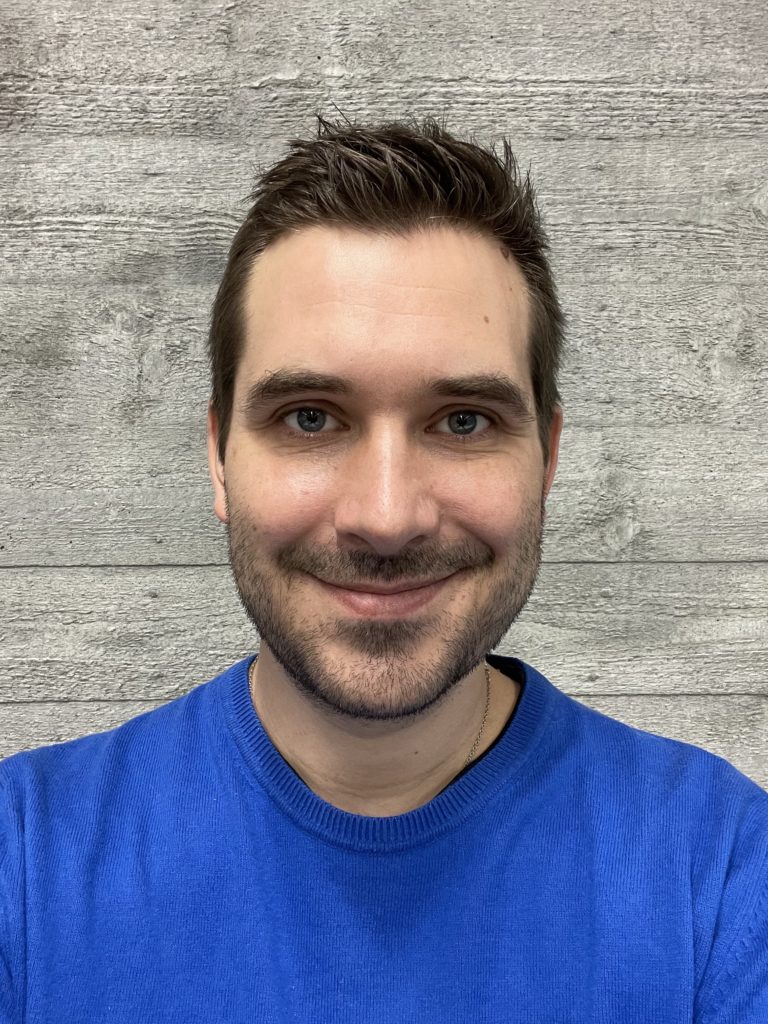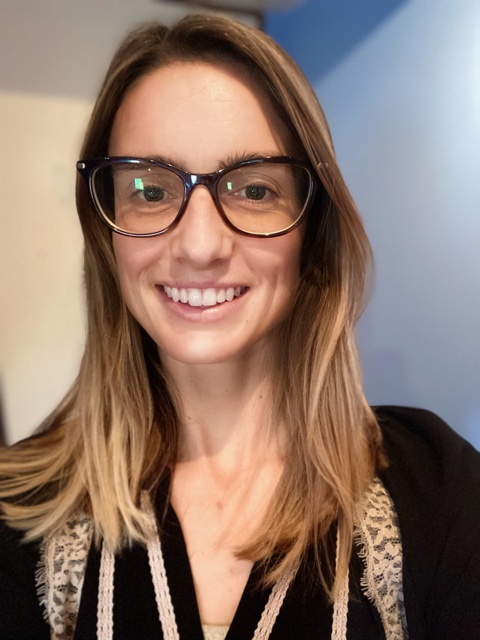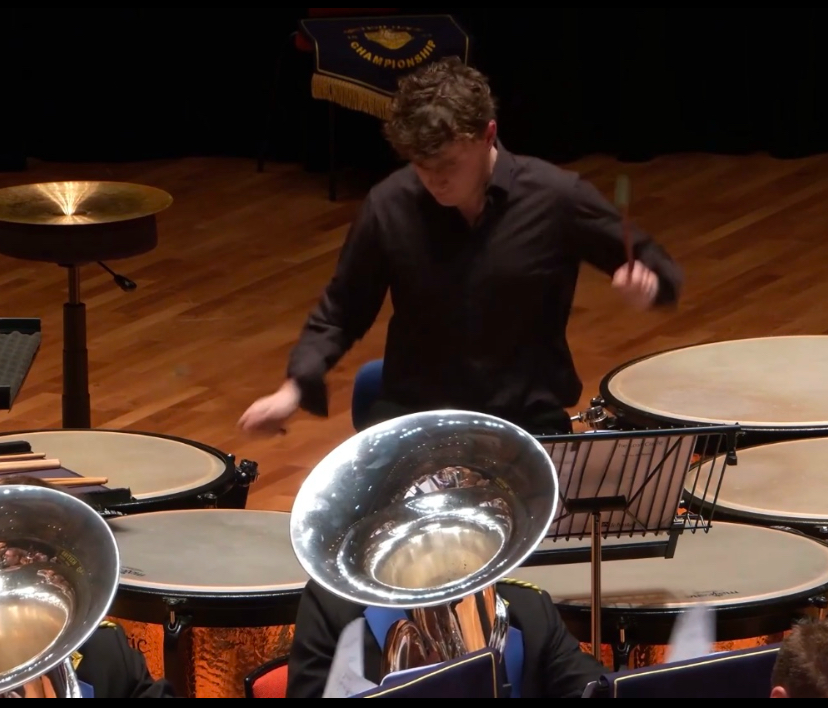Maria A. G. Witek

Dr Maria Witek is Professor of Music Psychology at the Department of Music, School of Languages, Cultures, Art History and Music, University of Birmingham. She has worked and studied across music and cognitive science since finishing her undergraduate degree in musicology in Oslo. She completed an MA in Music Psychology at Sheffield University, and a doctorate in Music at the University of Oxford. Before coming to Birmingham, she was Assistant Professor at the Center for Music in the Brain, Aarhus University, Denmark.
Dr Witek’s main interest is in researching the psychology, cognitive science and cognitive philosophy of musical experience, with a focus on rhythm, timing, emotion and body-movement. Much of her work is centred on trying to understand how dance music experiences and practices emerge from interactions between embodied, neural, musical and social processes. To date, she has focused primarily on the study of groove – the pleasurable experience of wanting to move to music. She uses research methods from across experimental psychology, cognitive neuroscience, qualitative social psychology, digital music analysis and phenomenology.
Dr Witek is also a live coder, under the artist name mxwx. She performs and makes algorithmic dance music at Algoraves and other live coding events, using TidalCycles. These performances are often collaborative with other live coders making music and visuals. She is a member of the live coding duo Bad Circulation, alongside Antonio Roberts (aka hellocatfood).
Contact: m.a.g.witek at bham dot ac dot uk
Daniel Galvis

Daniel Galvis is a Centre Fellow at the Centre for Systems Modelling and Quantitative Biomedicine, College of Medical and Dental Sciences, University of Birmingham. He is an interdisciplinary applied mathematician focussed on mathematical modelling in biology and medicine. He is particularly interested in studying the role that network structure and node-intrinsic heterogeneities play in coordinating complex behaviours. For example, he has developed network models to study the role that heterogeneity in excitability of pancreatic beta-cells plays in organising pulsatile insulin secretion. He is also working on network models to study how abnormal brain activity initiates, propagates, and terminates through neuronal populations during epileptic seizures. Additionally, Daniel is interested in developing data-driven mathematical models to inform experimental and clinical research. To this end, he has developed models of the interactions between stress hormones and inflammation after surgery as well as the accumulation of drugs in resistant bacteria.
Daniel will be working on the project “Embodied timing and disability in DJ practice”, where he will be developing a mathematical model to understand how DJs coordinate beatmatching, the process of adjusting period and phase of a track so that it synchronises with another track.
Toni A. Behtold

Toni is a music researcher, saxophone player and teacher born and raised in Germany, now based in Lucerne, Switzerland. He started playing saxophone at a young age and played in bands of all kinds during his teenage years. Toni went on to study jazz saxophone in Nuremberg with Steffen Schorn and Hubert Winter, started teaching woodwinds, and was for example a member of the national German jazz orchestra (BuJazzO). Afterwards he relocated to Switzerland, where he obtained master degrees in jazz performance and education at the Lucerne School of Music. He played thousands of concerts in Europe and overseas, mostly with small jazz ensembles or big bands and played on over 30 records. Since 2013, he is working as a researcher at the Competence Centre for Music Performance Research in Lucerne with a focus on groove, rhythm, jazz, and harmony. In 2019, he started a PhD in Music at the University of Birmingham.
In Toni’s PhD Project, ‘Groove and Catchiness in Popular Music,’ we investigate these two key characteristics of popular music with approaches from music psychology and music performance studies. Our basic hypotheses are that similar parameters are at work to promote groove and catchiness, and that these two can support each other. Music psychology defines the groove experience as pleasurable urge to move to music, but groove is also a structure, a layering of patterns. We bring these concepts together by examining how musical structures and other parameters evoke groove experiences. Despite being a major goal for popular music, research on catchiness is scarce and often reduced to memorability. In this project, we explore what catchiness encompasses and examine potential reasons why music is catchy. We conceived three consecutive work packages to investigate groove and catchiness from different angles. First, we conducted an interview study with musicians and producers to access expert knowledge on the topic. We combine this knowledge with existing literature to identify important musical and non-musical parameters and to substantiate our hypotheses. We investigate these hypotheses in an exploratory online listening experiment, followed by a second experiment that focuses on how different musical layers interact to promote groove and catchiness.
Gabriella Vizzutti

Gabriella Vizzutti was born and raised in Seattle, Washington. Vizzutti received her bachelor’s is Music Education from the University of Washington and spent several years teaching in Italy before pursuing her master’s degree at the University of Birmingham. Vizzutti began studying classical violin at the age of 4 and percussion at the age of 12. As an instrumentalist, she has played in various musical groups ranging from classical symphonic orchestra to rock & pop bands. Her teaching abroad, however, is what sparked her curiousity to pursue a postgraduate degree via research in Music.
Gabriella’s research aims to compare the prosocial effects that result from collective music making to those resulting from interpersonal touch. Vizzutti intends to gather data that highlights the effectiveness of music-making in promoting social cohesion and empathetic behaviour, and to demonstrate how music may be used as a social tool when interpersonal touch is otherwise impossible or forbidden (i.e., distance required due to Covid-19). Should music have a similar impact on behaviour as touch, music-making may very well be recognized as a vital tool in emotional and social development in children and infants, and a means to encourage social connection in adults.
Charlie Clark
Charlie is a first-year doctoral student. She studied a BMus Music at the University of Birmingham and then graduated from an MA Psychology of Music at the University of Sheffield in 2022. Her master’s dissertation was on pianists’ breathing in performance, and its relation to feelings of flow and music performance anxiety.
Alongside and in between her studies, she has worked and volunteered with neurodivergent groups. During her master’s she volunteered as a music assistant at Flourish Sheffield’s Music Improv Group for those affected by mental health conditions. From 2022-2024 she worked as a SEND teaching assistant, supporting children to access education. This experience and her own lived experience of being neurodivergent drives her current research interests.
Her doctoral research explores the experience of ADHD musicians and the relationship between musical performers’ ancillary movements and their emotions/experience of performing. Using a multi-disciplinary approach from cognitive science, physiology, disability studies and music performance, the project asks how the gestures and other movements musicians make relate to their ‘headspace’ in terms of both focus/flow and affect. It then explores how having an ADHD neurotype may affect/intersect with this experience. As ADHDers have dual variability in their attention and their ‘hyper’activity, it is expected that this relationship will be particularly important to this group. It is hoped that the project will both enlighten us on music cognition and our understanding of ADHD.
The project uses a neurodiversity paradigm and Participatory Action methods, where participants guide the direction and design of the research. This follows the stance of Disability activists that disabled people should be directly involved in the creation of research about them.- ‘Nothing about us without us’.
Charlie’s musical interests are eclectic. She plays euphonium and piano and has supported and performed with a variety of community bands and choirs. She enjoys using her diverse knowledge of music to support and teach others.
George Arthur
George Arthur is a PhD student in Music Neuroscience, working across the University of Birmingham’s School of Music and School of Sport, Exercise, and Rehabilitation Sciences. He completed a BSc in Cognitive Neuroscience and Psychology with Professional Experience at the University of Manchester, which included a placement year at the Jefferson Brain Research Centre, where he contributed to research on neuroimaging biomarkers of post-stroke cognitive decline. His undergraduate dissertation examined how motor imagery vividness and rhythmic complexity influence the intensity of musical groove

George’s PhD research focuses on understanding how rhythm influences movement, particularly in people with Parkinson’s. Using techniques like transcranial magnetic stimulation (TMS) and motion analysis, combined with participatory research methods, his work aims to explore how musical groove, rhythmic complexity, and musical pleasure interact to affect movement in healthy populations and in people with Parkinson’s.
Alongside his studies, George is an active percussionist and drum kit player. He currently plays timpani for the Hepworth Brass Band in West Yorkshire, an ensemble with a strong contesting tradition. He has previously conducted university brass bands and been closely involved in concert and contest programming. Outside of music, he enjoys running and mountain biking in the Welsh mountains—when injury allows!
Michele Suner
Michele Suner was born and raised in South Florida, a vibrant multilingual and multicultural environment that shapes her research interests today. She received her BA in English literature with a minor in music from Florida International University (FIU). While working at FIU as a graduate assistant, she achieved her MA in Linguistics. With Dr. Mehmet Yavas, she co-authored an article and a book chapter on spectrographic manifestations of the lateral (L sound) in heritage speakers of Spanish. She now works as a graduate writing consultant at FIU’s Center for Excellence in Writing, where she assists graduate students with their academic writing, with a special focus on helping multilingual writers gain confidence and develop their authorial voices.

Outside of her studies, Michele is a member of the Schola Cantorum Miamiensis, which performs Gregorian chant, choral hymns, and polyphonic works. As part of the schola, she observed that its members acquired intuitive knowledge of the grammatical structures of Latin simply by singing Ecclesiastical Latin texts without explicit study. Therefore, it is fitting that her interdisciplinary research seeks to more fully investigate the interface between language and music, specifically seeking to evaluate to what extent singing can be used to facilitate language learning. The research process will include spoken, rhythmic, and musical presentations of a specific Spanish verb pattern that is usually not learned explicitly by native speakers, with the aim of determining whether singing can help English-speaking adult learners of Spanish acquire the verb pattern more easily.
COLLABORATORS
Caroline Cooke
Caroline the DJ, also known as Caroline Cooke, is an electronic music artist, educator, and advocate. Their journey in music began during college, where they discovered a passion for electronic music production. With a focus on harmonious melodies, synthesizers, and vocal samples, their music spans ambient and hard dance genres. Influenced by a diverse range of musical experiences and inspirations, Caroline’s sound evokes a sense of nostalgia and curiosity. They are celebrated for their DJ work, including a residency at Aaja Radio and a feature in DJ Mag, where they shared their unique perspective as a neuro-divergent artist. Caroline is not only committed to creating art but also to fostering inclusivity within the music industry, particularly for marginalized communities, making music both a creative outlet and a powerful form of communication. They are currently a co-researcher on the “Embodied Timing and Disability in DJ Practice” project.
Gemma Nash
Gemma Nash works in sound with a focus on re-imagining the ‘othered’ body and the complex relationship between medicine, disability and ethics. She came to sound art through being a laptop DJ and VJ mixer. Specialising in funky house and drum and bass under the name Crip2night, she later produced her own compositions and began to experiment with VJing. She frequently co-creates with other artists, activists and academics. Currently, she is a co-researcher on the “Embodied Timing and Disability in DJ Practice” project.